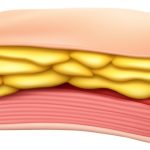Are you looking to improve your health and combat inflammation using natural methods? Let’s delve into Dr. Weil’s anti-inflammatory food pyramid. For more anti-inflammatory recipes and foods, check out this helpful resource: anti-inflammatory recipes. It’s a practical guide focused on strategic eating for enhanced well-being and reduced inflammation. Forget about strict diets or restrictive eating; this is about adopting smart food choices that can significantly improve the way you feel.
Exploring the Anti-Inflammatory Diet Pyramid Food Groups
The core of this plan is straightforward: prioritize foods that should frequently be on your plate. Consider it like building a sturdy foundation for a house – the base must be solid. Dr. Weil’s pyramid starts with an abundance of fruits and vegetables, which are naturally high in antioxidants. Aim for a diverse range of colors – variety is key! These foods are rich in beneficial substances that protect your cells from damage, known as antioxidants. Load up on berries, leafy greens, and vibrant peppers.
Next, incorporate whole grains. Avoid refined or processed options and choose whole grain bread, brown rice, and quinoa. These options provide lasting energy and fiber, which are crucial for a healthy gut that helps control inflammation. Don’t overlook beans and lentils, which support a healthy gut and promote satiety.
Healthy fats are also vital. Avoid greasy or processed fats. Instead, choose avocados, nuts, seeds, and olive oil to provide essential fatty acids. These fats are beneficial for maintaining low inflammation levels. Finally, incorporate lean protein sources like fish (especially salmon), poultry, and beans to support your body’s repair and renewal processes.
Moderating Food Choices: Creating a Balanced Plate
The pyramid’s peak includes foods to minimize. This includes red meat, sugary treats, and heavily processed foods. While occasional consumption is acceptable, these foods can promote inflammation. Consider them occasional treats, not dietary staples.
Herbs and spices can boost health benefits with anti-inflammatory properties, such as turmeric, ginger, and garlic, which can significantly boost the health benefits of your meals. According to research published in Advances in Experimental Medicine and Biology, curcumin, the active compound in turmeric, has demonstrated significant anti-inflammatory and antioxidant effects and helps in the management of arthritis, allergy, asthma, atherosclerosis, heart diseases, Alzheimer’s disease, diabetes, and cancer.
Practical Application: Steps to Change Your Diet
Follow these actionable steps to integrate Dr. Weil’s anti-inflammatory method into your daily routine:
-
Evaluate: Start by evaluating your current diet. Where do you see opportunities to add more fruits, vegetables, and whole grains?
-
Start Small: Don’t try to overhaul your diet. Start by adding one extra serving of fruit or vegetables each day; small, gradual changes are always more effective.
-
Plan Meals: Planning is key to making healthy choices and avoiding unhealthy snacks and meals.
-
Swap Ingredients: Replace white bread with whole wheat and choose lean protein like chicken breast over fatty red meat.
-
Listen: Determine how various foods affect your energy level, digestion, and overall well-being.
Benefits and Downsides: Weighing the Options
| Pros | Cons |
|---|---|
| Emphasizes whole, unprocessed foods. | Regular sourcing of organic produce and high-quality fish can be challenging. |
| Promotes a diverse diet, improving vitamin and mineral intake. | Some scientific claims may not be fully supported, highlighting the importance of evidence-based decisions. |
| Compatible with anti-inflammatory principles, promoting all-around wellness. | Possible need for dietary supplements, which may increase costs. |
| Offers a well-organized approach, which simplifies meal planning. | Consistent dietary adjustments may be hard to maintain long term. |
Overall Well-being: Beyond Diet
This food pyramid is a helpful guide but not a universal solution. Personalized diet adjustments are necessary because everyone’s body responds differently. Consulting a doctor or dietitian is crucial before making dietary changes, especially if you have health issues. Remember to prioritize sustainable, lifestyle-fitting changes, and treat the journey as a marathon instead of a sprint.
Customizing Your Diet: Fine-Tuning Your Plan
Key Aspects:
- Focuses on whole foods for inflammation, prioritizing long-term health.
- Aims to improve general health.
- Success depends on personal needs, accommodating variations across cultures.
- Paying acute attention to macronutrient ratio.
- Consult a doctor to address deficiencies using supplements.
Individual Needs: Why Personalization Matters
This diet requires individual adjustments, acting as a toolbox of healthy eating ideas. You must select strategies tailored to your individual needs, focusing on inflammation reduction via food choices. Customization helps translate these principles into your daily life.
Pyramid Adaptation: A Guide
-
Evaluate Current Diet: What are your eating habits? What foods could be changed?
-
Incorporate Gradually: Add one or two parts of the diet each week for manageable changes.
-
Macronutrient Balance: Follow this as a suggestion, not a fixed rule. Align with activity level, and meet with a professional to determine goals.
-
Preferences: Consider allergies, ethics, and lifestyle. If applicable, make a fully vegetarian adaptation.
-
Supplements: Talk with your doctor before beginning supplements, concerning the correct dosage.
-
Evaluate: Check on your health routinely, and modify to suit your needs, potentially including indicators of low inflammation.
Handling Challenge: Obstacles and Solutions
-
Cost: Purchase local components.
-
Time Restraints: Prepare healthy make-ahead meals.
-
Accessibility: Get creative with substitutions. Substitute the correct plant based protein if you are vegetarian or cannot aquire the correct food.
- Why Am I Always Thinking About Food? Your Body and Brain Explain - February 2, 2026
- Healthy Eating Is About Quality, Not Just Calories - February 1, 2026
- Healthy Living Products to Elevate Your Wellness Routine - January 31, 2026










